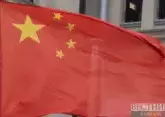A 10% tariff on US liquefied natural gas is not steep enough to make shipping cargoes to China unprofitable, but it adds an obstacle for the second generation of American terminals, industry observers said. As S&P Global Platts writes in the article As tariffs on US LNG take effect, warnings of long-term consequences, with the 10% tariff implementation, we are probably not going to see a cessation of US LNG exports to China.
Madeline Jowdy, senior director of global gas and LNG analytics at S&P Global Platts and other observers at the United States Association for Energy Economics conference this week in Arlington, Virginia, described the ongoing trade war between the US and China as a headwind for the emerging American LNG industry, which some experts say is a key defense against a global supply shortfall that could appear in the mid-2020s. The biggest effect could be greater difficulty for US developers already struggling to find long-term buyers for their multibillion-dollar LNG export projects.
The tariff took effect Monday. It was lower than the 25% tariff China had initially threatened to apply to US LNG, among other products, to counter the Trump administration's proposed tariffs on $200 billion of Chinese imports.
Sending US cargoes to China could still be profitable, said Ronald Ripple, a professor of energy business and finance at The University of Tulsa. "Even with a 10% reduction off of the market price in Asia, they get a greater netback for that than if they ... went to Europe," Ripple said in an interview at the conference. "They'll still take it to Asia. They'll still take it to China."
Some buyers and sellers may try to divert cargoes of US LNG to China in anticipation of developments in the trade war, Jowdy said. "We've definitely heard that basically anybody who was planning on cargoes to China this winter, they are definitely trying to swap them out to the extent that they can," Jowdy said.
US LNG exports are an outlet for surging gas production in the country. Gas is able to fetch multiples of its US price in Asia, Dean Foreman, chief economist at the American Petroleum Institute, said during a panel held Wednesday at the conference. "Security of supply is one of the important ingredients," Foreman said, especially for LNG buyers in Asia. "Who do you trust to sign a long-term procurement agreement for LNG? And if you are having a trade spat with that partner, it's really hard to get them to come to the table and sign a trustful long-term agreement."
China is expected to be the largest incremental buyer of LNG. But right now US LNG is a small portion of China's total LNG imports, even though China is a significant destination for US LNG exports. From Cheniere Energy's first export of LNG from the Lower 48 in February 2016 through July 2018, China has received the third-greatest volume of US LNG of any country.
An appointee in the Trump administration, the Interior Department's Assistant Secretary for Land and Minerals Management Joseph Balash, described the tariffs as a temporary negotiation tactic. He expected gas production on the public lands under his purview would still make its way to the global export market. "There are some headwinds -- there are some issues associated with trade right now that we view as a negotiation," Balash said during the Wednesday panel. "Our expectation is that we will overcome these current additional costs in the marketplace because of the tariff fight that's going on between our nation and China in particular. We view that as temporary."
US LNG exports could grow by 2024 to supply around 20% of the global LNG market, up from roughly 5% now, Jowdy said. She said the most significant effect that US gas would have on global markets would result from the commodity being priced against the Henry Hub benchmark, meaning it could be sold on a liquid basis that can be hedged. "It's important to remember that the US is really only just starting its process in terms of liquefaction additions," Jowdy said. "And when people say, 'Well, where is the oversupply? Where is the liquid gas market? Where is the Henry Hub indexation in Asia?' -- all I can say to you is 'hang on a second. It's coming.'"










